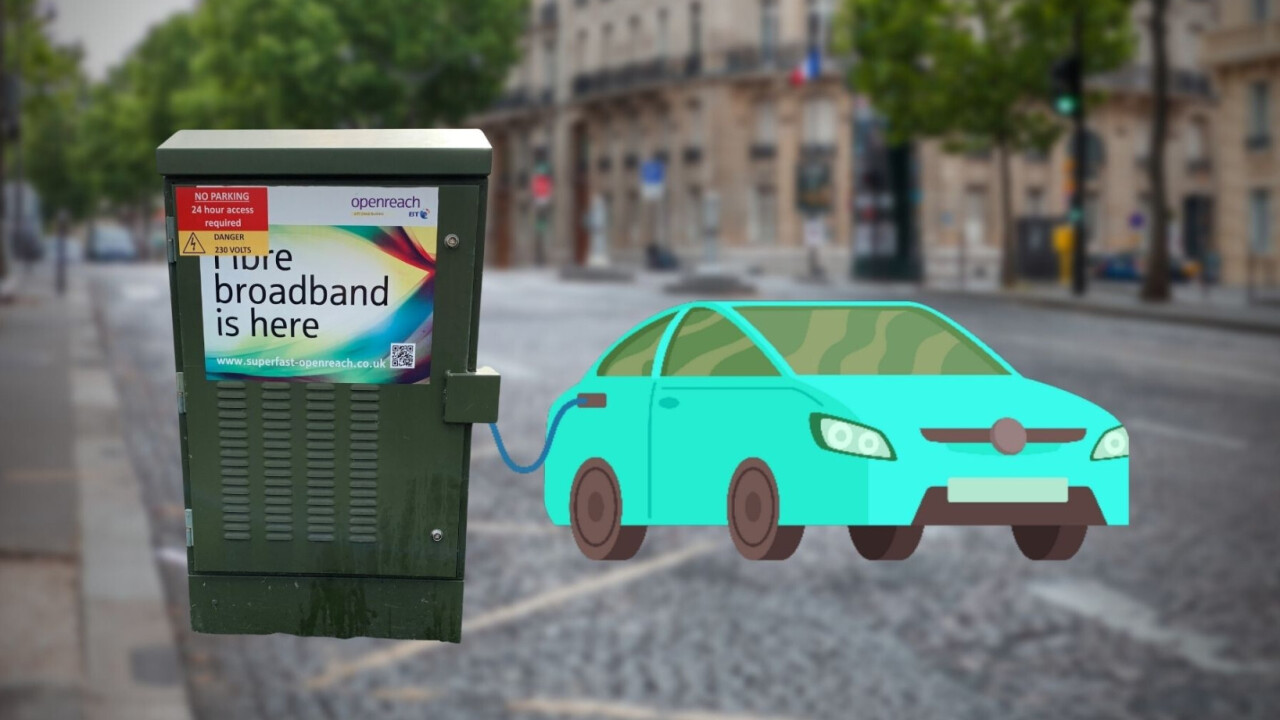
The innovation arm of British telecoms giant BT — called Etc. — is looking to convert the Group’s street cabinets into EV charging points.
The big green cabinets, a common sight across the UK, are currently used for providing copper-based broadband and phone services but are soon to be decommissioned as BT transitions to full fibre networks.
The company estimates that as many as 60,000 of its 90,000 cabinets may be suitable for retrofit. Etc. will now conduct a series of technical and commercial pilots over the next two years to determine the feasibility of a conversion on this scale.
The first of these pilots will kick off in Northern Ireland this autumn, and will initially offer BT Group colleagues access to the charging ports. The company plans to broaden the trial to the public soon and launch more pilot locations across the UK later in the year, it said.
“With the ban on sales of internal combustion engine vehicles coming in 2030, and with only around 45,000 public charge points today, the UK needs a massive upgrade to meet the needs of the EV revolution,” said Tom Guy, managing director of Etc. at BT Group.
The UK government aims to grow the number of EV charge points from around 45,000 today to 300,000 by 2030 and has allocated £1.6bn to get the job done. It’s not clear from the release whether any of that cash has been allocated to BT’s trials.
Despite the government’s ambitions, recent analysis shows that it is “10 years behind” on its charging infrastructure commitments, which risks derailing the transition to greener transport.
“Programmes like BT Group’s are an incentive for other businesses and drivers to go electric,” said Helen Clarkson, CEO at London-based non-profit Climate Group. “But we need the UK government to play its part – wider availability of charge points right across the country, not just in London, will help build confidence that switching to an EV is the right option.”
Businesses across Europe are starting to capitalise on the government’s sluggish response. In Ireland for instance, startups are developing solutions to bridge the gap between the growth of EV sales and the roll-out of charge points — from the Airbnb of home chargers to hub-style sites along arterial routes.
Startups like these are set to benefit from new regulations passed last week which require fast recharging stations to be installed every 60 km along the EU’s main transport corridors by 2025.
Back in the UK, it remains to be seen whether BT will make a dent in the government’s EV charging targets. The company said it is weighing up whether to go into this venture alone or with a pre-established charging partner, acknowledging the necessity to work with local councils and authorities in order to get the infrastructure installed smoothly.
Get the TNW newsletter
Get the most important tech news in your inbox each week.





